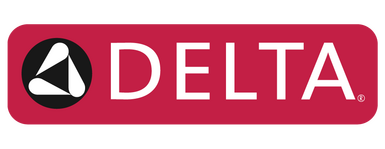
What could be at all analytical about an elegant kitchen or bathroom faucet? Actually lots. As the name suggests, the Delta Faucet Company is synonymous with products for showering, bathing, sinks, toilets, and steam showers. In this episode I visit with Liz Kershner who recently joined the company as Senior Director for Strategy, Insights and Advanced Analytics. We cover the hybrid organizing model that Liz has implemented, and the various roles that analytics plays including market forecasting and monitoring of consumer behavior and trends. We finish up with a few book recommendations that you won’t want to miss.
Describe your title and role. Where does your function report within the organization?
I'm a Senior Director for Strategy, Insights and Advanced Analytics. I specifically joined with an interest in helping grow and accelerate our use of advanced analytics. I have responsibility for enterprise strategy for our insights team. I also have the pricing function as well as our enterprise project management office (EPMO). I report to the Vice President of Brand Innovation and Growth. Our function is specifically situated as a part of the business, focused on building capabilities for the organization.
Describe the organizing model you have adopted for analytics.
As it relates to our organizational structure for advanced analytics, we do have a hybrid structure. The advanced analytics Center of Excellence (COE) reports solid-line into me, and the embedded advanced analytics teams across our channels and functions report dotted-line into the COE. It's definitely a growing team. We have about 15 professionals who work either full time or part time in the analytics discipline, and we have a much broader community of those who are engaged with analytics or have aspirations to join the advanced analytics function at some point in their careers.
What are the most important application areas at Delta? Which business partners do you work with most?
I like to say that I started my career in forecasting, and I'm pretty sure I'm going to end my career in forecasting in some way, shape, or form. Market forecasting is a big area of interest and also an area where we can create value through analytics. A couple of other areas that are high on the list are the continued monitoring of consumer behaviors and trends. We can do that through a variety of forms, both through traditional market research and advanced analytics. Another area of particular application for analytics is on the pricing side, given the dynamic market and consumer behaviors that continue to change.
What is your talent strategy for data and analytics personnel?
One of the most important things that I have learned throughout my journey in analytics and data science is establishing a meaningful function within the organization, and also establishing roles within the function that allow for growth, both horizontally and vertically. We have a number of different roles that fall within our data and analytic functions, and individuals can choose to grow across those roles, maybe to diversify their toolboxes or maybe to go deeper in areas of specialization and grow vertically and level up. Even if you're growing horizontally in your skill sets, you can also progress in levels and salaries, too.
How do you measure performance and success when it comes to analytics?
This is a challenging question in the analytics space. I would say that overall success is when analytics accelerates our business results. We've successfully created an analytics product or an insight that was used to inform or influence a business decision. We took the evidence, and then we drove the action. We are trying to track that as we deliver insights. As I've grown in the profession, I've gotten a deeper appreciation for the behavioral aspects that we need to drive in the business too. And so, I gauge my own success on whether or not we have pivoted the organization toward becoming a problem-driven organization. When someone comes to me with that framework in mind, and they've thought through, here's my problem and here's how I would use the results to inform a decision, I feel like we've been successful.
What advice would you give to aspiring analytics professionals?
1. Build your communication skills. It's not only about technical skills. Even for the simplest dashboard, you need to be able to articulate what the numbers mean for the business.
2. Employ your own curiosity. Be willing to continuously learn about the business problems you're working on. This requires a lot of questions upfront, making sure you understand what it is the business is seeking to do. This also means we have to roll up our sleeves to learn a different part of the business.
3. Stay current with the latest technology. Keep up with what's coming forth that can make our jobs and the work we're doing more efficient. Make sure you're continuously growing in your field.
4. Suggested reading: Leading with AI and Analytics by Florian Zettelmeyer and Eric Anderson.
For more insights from Liz, listen to the full podcast.